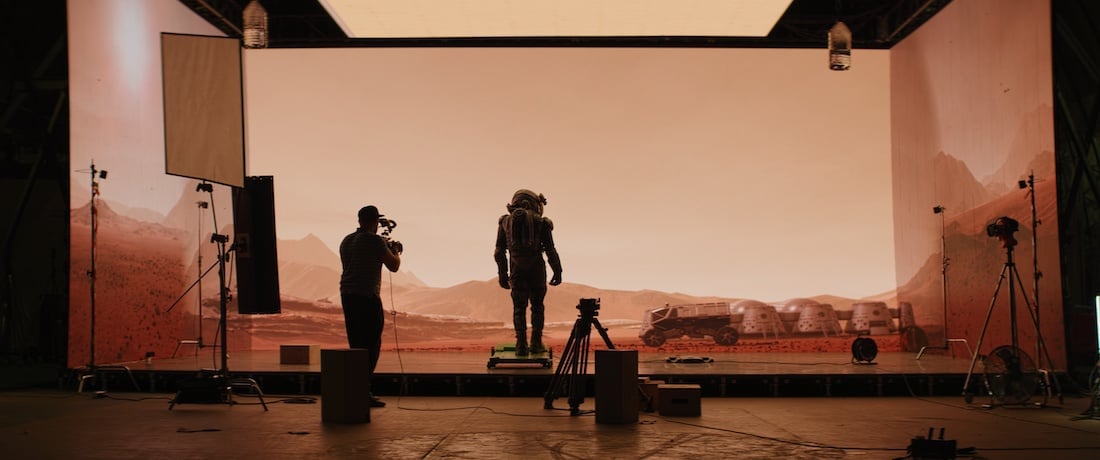What Literary Reps Look for In Screenplays: Q&A with David Boxerbaum
August 23, 2023
Final Draft has joined forces with Coverfly to chat with literary rep David Boxerbaum in a live Q&A over Zoom to find out what a successful rep is looking for when trying to obtain new writing talent. Boxerbaum shared his thoughts on what a distinct “voice” looks like on the page, whether TV or film is best for establishing yourself as a writer and a surprising format that’s finding great success: the short story.
Read More: How to Write Short Stories That Make an Emotional Impact
David Boxerbaum began his career in Hollywood working for producer Jerry Bruckheimer before moving to the William Morris Agency. He then worked at Endeavor, followed by Paradigm where he cemented himself as a leader within the agency and the literary field. Boxerbaum is currently a partner and lit agent at VERVE Talent and Literary Agency.
Check out the full interview below and continue on for five main takeaways from the lively discussion.
Read More: 5 Reasons You Should Write a Short Story
What is “Voice’ When It Comes to Writing?
We’ve all heard that as screenwriters, it’s important to have our own unique voice come through on the page. So what does “voice” really mean? Here’s what it looks like for Boxerbaum.
“When I read material, it speaks to me in a way other material hasn’t,” says Boxerbaum, adding, “It moves me emotionally, makes me feel a certain way.” He says there are two main ways a writer’s voice stands out. “It affects me in a way where I haven’t seen that certain voice before, or it’s the kind of voice I’ve had success with in the past. That’s usually what I gravitate towards.”
For him, voice is usually seen in what the lead character does and says. “It’s usually in the [scripts] that are very character and dialogue driven. Concept is very important to me – especially in this day and age where high concept is a huge advantage to have but for me, it’s always been about the character and dialogue. That’s what really grabs a reader or grabs a representative,” he says.
Read More: How To Give Your Screenplay Your Voice

Should Writers Start Their Career in Film or TV?
First and foremost, a writer should follow their passion. That’s the way to get the most emotional juice out of their stories and Boxerbaum agrees. “I would never tell you to pick a lane. As a storyteller and artist, you want to tell stories in all mediums – whether it be features or television. It’s incredible that someone would want to do both. There’s pros and cons to both, hurdles to both,” says Boxerbaum.
The first hurdle to overcome as a writer is having control over your content. That’s why writing a feature screenplay is a good place to start. He says anyone can sit down, write a screenplay from beginning to end, but, “TV is slightly different. You can [still] sit and write a piece of material but it goes through different machinations to where you don’t really control the process of getting it set up and sold. To me, the feature space is one that people can achieve a little more success early on over the TV space,” says Boxerbaum. But if you’re just starting out and your sole passion is TV, don’t worry too much. “At the end of the day, good material will always win. Call me naïve or having rose-colored glasses on, good material will always be wanted, especially when the strike is over,” he says.

The Studios Are Less Interested in The Script Development Process Now
Boxerbaum says that 15 years ago, a writer could sell a high-concept feature script based on the concept alone – even if the script needed some work. But that’s no longer the case.
“I think people’s resistance to long-term development has changed… Over the course of the past few years, there’s been less interest in putting the time and energy into getting something over the finish line. So scripts are more developed out when they get to executives,” he says. Usually, that starts with a good representative or management team working with the writer to make sure the script is ready for executives to read and to go into production. “What I haven’t seen change is people still want great stories. They want to be moved, they want to be scared, they want to feel emotionally sad, they want to feel emotionally hopeful or inspired by all of those things,” he says.
Knowing that, it's all the more important to make sure your script is the best it can be before you shop it around. Get people to read it, pay for script coverage and make sure you work out all the kinks before it goes to market.

Does a Writer Need Supporting Materials Like a Pitch Deck or Series Bible?
The answer depends on whether you also want to direct the project you’ve written.
“If you’re a director or filmmaker, or you’re trying to get to a place where you want to be behind the camera, then when it comes to pitch decks and those kinds of things that’s where it’s really beneficial. It gives the audience a visual, a real clear understanding of what you’re trying to accomplish. When it comes to going out with a pitch or you’re writing a new script, I don’t think that additional element really matters or moves a needle,” says Boxerbaum, adding, “If you’re a writer, I would caution against that, you don’t need that. If it’s on the page, let the writing speak for itself.”

The Short Story is an Exciting New Medium for Writers
Starting with online forums like Reddit’s ThrillSleep thread, thriller and action short stories have grown in popularity and are getting a much wider audience than they used to. These pieces of short fiction can easily be adapted into other mediums like TV or movies.
“Over the last few years, we’ve found real success in the short story space,” says Boxerbaum. “We took storytellers, put them into that space and found people in that space and were able to deliver new content in that arena and not necessarily in the full spec [script] arena.” But don’t fret if writing spec scripts are your main focus, he says. “Specs will still have their place and still sell, and people will have a real appetite for them when this strike is over, but I do believe that a new content space like short stories will emerge from this. Which is only going to be exciting to anyone [watching this discussion] because it just shows you there are other ways to get things made. Maybe in the past, it was a spec or a novel, but now there are different avenues to finding a home for a piece of content or story to be told.”
Written by: Shanee Edwards
Shanee Edwards is an L.A.-based screenwriter, journalist and novelist who recently won The Next MacGyver television writing competition to create a TV show about a female engineer and was honored to be mentored by actress/producers America Ferrera. Shanee's first novel, Ada Lovelace: The Countess Who Dreamed in Numbers was published by Conrad Press in 2019. Currently, she is working on a biopic of controversial nurse Florence Nightingale. Shanee’s ultimate goal is to tell stories about strong, spirited women whose passion, humor and courage inspire us all.- Topics:
- Industry Interviews & Spotlights




